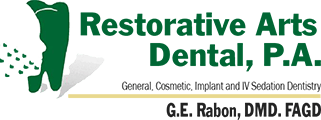How long does a typical dental cleaning appointment last?
Upholding exemplary oral hygiene is vital for holistic health, with routine dental cleanings being a fundamental aspect. Individuals often wonder about the duration of a typical dental cleaning appointment. In this article, we’ll delve deeper into the factors influencing the length of a dental cleaning session and what individuals can anticipate during this routine procedure.
Understanding Dental Cleanings
Dental cleanings near you, also known as prophylaxis, are preventive measures to remove plaque, tartar, and stains from the teeth. Typically performed by dental hygienists, these cleanings are fundamental for sustaining optimal oral health.
Factors Influencing Appointment Duration
The time span of a dental cleaning session can differ due to various elements. Understanding these factors provides insights into why appointment durations may differ among individuals.
- Oral Health Status
- The current state of an individual’s oral health is a pivotal factor in determining the duration of a dental cleaning. If there are extensive plaque deposits or signs of gum disease, the cleaning may take longer to address these issues thoroughly.
- Regularity of Dental Visits
- Regular dental visits contribute significantly to maintaining good oral health. If an individual attends routine cleanings, there may be less buildup to address during each session, potentially shortening the overall duration.
- Presence of Dental Issues
- The presence of specific dental issues, such as cavities or early signs of gum disease, may necessitate additional attention during the cleaning process. Addressing these issues can extend the duration of the appointment.
What to Expect During a Dental Cleaning?
Standard dental cleaning appointments encompass multiple critical stages to guarantee a thorough and successful cleaning routine.
- Examination
The dental hygienist initiates the appointment by thoroughly examining the teeth and gums. This examination helps identify any areas needing special attention during the cleaning.
- Plaque and Tartar Removal
- Using specialized tools, the hygienist carefully removes plaque and tartar from the teeth. This step is crucial for preventing cavities and maintaining healthy gums.
- Polishing
- After plaque and tartar removal, the hygienist polishes the teeth using a gritty toothpaste. It leaves the teeth smooth and clean and helps remove surface stains.
- Flossing
- Flossing is an integral part of a dental cleaning appointment. It ensures that the spaces between the teeth are free of debris and plaque, contributing to overall oral health.
- Fluoride Treatment
- A fluoride treatment may sometimes be administered to strengthen the teeth and provide additional protection against cavities.
How Long Does a Typical Dental Cleaning Appointment Last?
On average, a dental cleaning session lasts between 30 minutes to an hour. However, individual factors, as mentioned earlier, can influence this timeframe.
What Sets Restorative Arts Dental Apart?
Restorative Arts Dental recognizes the significance of comprehensive dental cleanings in maintaining optimal oral health. Committed to personalized care, their team ensures that each patient receives the attention and thorough cleaning they deserve.
Conclusion
In conclusion, the duration of a typical dental cleaning appointment is influenced by various factors, including oral health status, regularity of dental visits, and dental issues. While the average time is around 30 minutes to one hour, individuals can expect personalized care based on their unique needs. Regular dental cleanings are crucial to preventive dental care, contributing to a healthy and vibrant smile.
Are dental cleanings painful?
Dental cleanings are typically not painful. Some individuals may experience mild discomfort, especially with significant plaque or tartar buildup.
Can I undergo a dental cleaning if I have sensitive teeth?
Yes, individuals with sensitive teeth can undergo dental cleanings. It’s essential to inform the dental hygienist about any sensitivity so that appropriate measures can be taken.
What happens if I skip regular dental cleanings?
Neglecting consistent dental cleanings can result in the buildup of plaque and tartar, elevating the chances of tooth decay, periodontal disease, and additional oral health complications.

